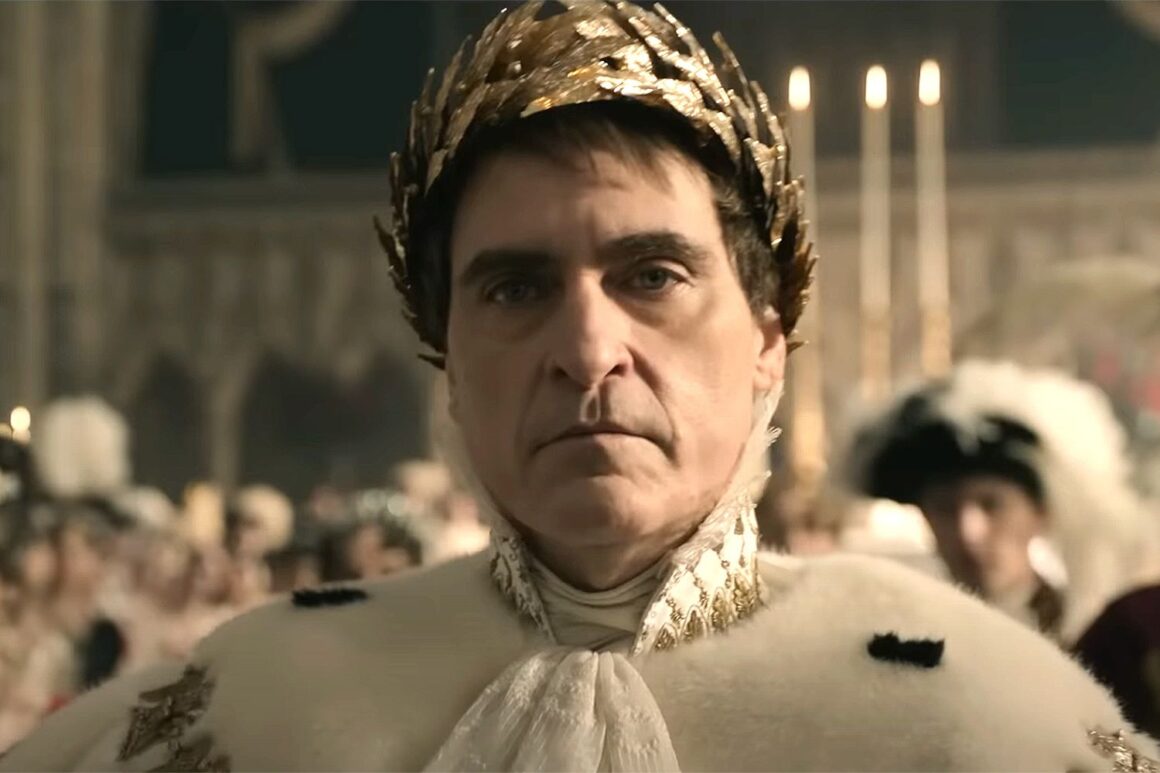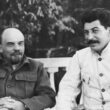Reviewed by C. J. McKeown
“What a novel my life has been!” Napoleon reflected in exile. Indeed, we can easily tell Ridley Scott paid little attention to history while making his Napoleon because that history is infinitely more fascinating than his script. While it would be expected in any review of historical media to note key inaccuracies, they are so plentiful here that there is little point in starting (an abundance of such material already exists elsewhere). It is better to consider this film a reflection of our present rather than a retelling of the past.
Charitably put, this is a Napoleonic MacBeth born of Anglo-American liberalism, with a mad emperor reminiscent of Gladiator (2000) upsetting a ‘natural order.’ Echoing Edmund Burke, Scott’s conservativism sees revolution as something pointlessly bloody and self-defeating and assumes that ‘human nature’ must inevitably reverse any revolutionary gain. We open with the execution of Marie Antoinette because this popular image sharply evokes that capitalist liberal fear of revolution (never mind that the overthrow of feudalism birthed the modern capitalist state!). Any depiction of Napoleon must address the “great man” theory of history. In this cyclical perception of history, he is merely a placeholder tyrant until a rightful order is restored. By giving Bonaparte little agency and instead letting him stumble wherever history requires, Scott can reduce him to an example of why ‘revolution doesn’t work.’ This is a product of liberal determinism packed with fiction.
A patriarchal misfire
Like many before him, Scott uses Bonaparte’s relationship with Josephine as the medium through which to tell his story. Similar to Cleopatra or Catherine the Great, Josephine has often been portrayed as a purely sexual being – a consequence of old British propaganda. Napoleon believed women’s role was to support their husbands and bear children, and Scott rightly exposes this.
However, the film itself fails to give Josephine much character outside this patriarchal role. In scenes with minimal dialogue, Vanessa Kirby carries Josephine’s grace and intellect as an expert manoeuvre in high society, but there is little in the actual script to support this. When Napoleon’s second wife, Marie-Louise, appears briefly only to give birth offscreen, one could feel the film may be imitating Napoleon’s opinions.
The age gap between Joaquin Phoenix and (the younger) Kirby has drawn some criticism, inverting that of their real-life counterparts; Josephine’s self-assured sophistication coupled with Napoleon’s social inexperience made for an interesting power dynamic, which later morphed dramatically in the emperor’s favour. Both actors did well with their poor scripts, and it is quite remarkable that for a moment, Phoenix carried the manners of a solemn, awkward young Bonaparte out of his depth in high society, even if the actor’s age did betray him.
Did Ridley Scott do that bit?
The film has other merits besides its actors. Joesphine’s seduction of Napoleon is echoed in the final scene, so there is some attempt at poetry. The traditional Corsican Kyrie sung at pivotal moments highlights the emperor’s roots in a colonial periphery, though it is never clearly established as Corsican for the benefit of casual viewers. Particular praise should be given to the costume design; for the latter half of Napoleon’s career, Phoenix certainly looks the part and history-buffs in the know can easily pick out the emperor’s famous marshals from the background.
This artistic talent extends even to promotional material. The film sees Josephine wear a red ribbon around her throat, a traumatic post-terror custom indicating a widow’s availability for courtship after the guillotining of her husband. In a stroke of thematic brilliance, one poster of her replaces the ribbon with Napoleon’s own signature. Such carefully crafted details permeate the entire film, and clearly, Scott’s cast and crew invested great effort in their work. The problems seem to emerge when Scott himself misassembles these well-crafted parts, and the film’s best details might be those over which he had less influence.
A dwarfed epic
Something the audience felt promised was sheer scale, and yet this failed to fully materialise. Placed within a century-long catalogue of Napoleonic cinema, Scott’s work feels outdone in size, storytelling and characters by films still committed to accuracy. Bonaparte’s first biopic, Gance’s 1927 silent classic, was technically innovative and still conquers the senses a century later. Bondarchuk cast 17,000 soviet troops as extras for Waterloo (1970), but remembered that this brigade was not an army and always carefully packed the screen with men – unlike Scott’s beautiful landscape shots, which constantly shrink down his Grande Armée.
Spielberg and HBO are expected to adapt Kubrik’s famously abandoned script and already some are wondering how Scott’s film will compare. Scott has alluded to a complete four and half hour version. If the theatrical release is simply a cutdown edit, this could explain the film’s disorientating time-skips, omission of important details, poor pacing and uncompelling characters. Perhaps that is actually the epic we were promised. After all, Blade Runner’s (1982) initial release performed poorly, but Scott’s director’s cut is a beloved cult classic. However, this is a review of Napoleon’s theatrical release, and one cannot help but feel our anticipations have dissolved into a disappointing footnote of historical filmmaking.












